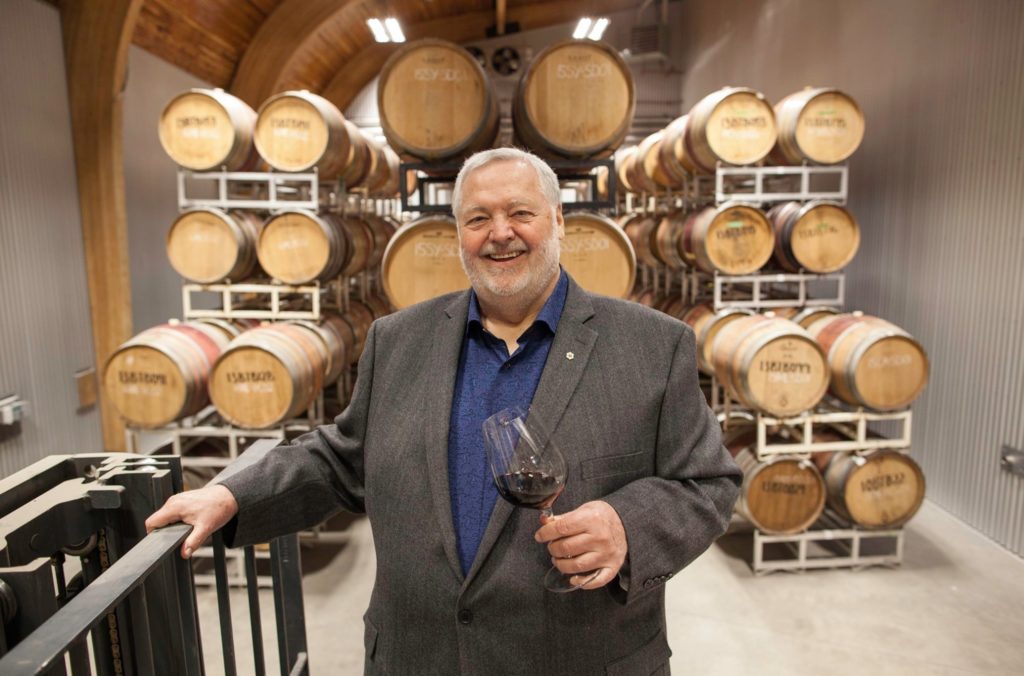
Harry McWatters, a lion of the British Columbia wine industry, passed away in his sleep Tuesday at his home in the Okanagan Valley community of Summerland. He was 74 years old.
He was a tireless promoter of British Columbia wines, not only his own, but the industry as a whole.
“It’s a huge loss for our industry,” Miles Prodan, President and CEO of the British Columbia Wine Institute said in an email to Great Northwest Wine.
Two years ago, when the Vancouver International Wine Festival presented McWatters with its Spirited Industry Professional Award, Toronto-based journalist Tony Aspler said, “Harry McWatters is, quite simply, the Robert Mondavi of British Columbia wines.”
Depending upon the topic or one’s point of view, McWatters could be looked upon as a visionary, a maverick, an iconoclast or a traditionalist. History proved that he ultimately won many debates, yet he earned the respect of many and picked up a long list of friends along the way.
Sandra Oldfield, an American-born winemaker and former CEO of Tinhorn Creek Vineyards in Oliver, British Columbia, shared on Twitter, “What I liked about Harry was that he made room in this industry for others to shine. He didn’t steal the limelight — he shared it. There are many in the industry now that I think could learn from this.”
He was awarded the Order of British Columbia in 2003 and was a recipient of the Queen’s Golden Jubilee Medal. In 2013, British Columbia’s speaker of the house presented McWatters with the province’s Diamond Jubilee Medal. Those accolades can be attributed to his dedication to a long list of alliances, associations, organizations and causes.
Longtime winemaker Howard Soon, one of McWatters’s oldest friends in the industry and a recent appointee to the Order of Canada – the highest honor that Canada can bestow upon a citizen – told Great Northwest Wine, “We will miss him socially and professionally. I think he has been in a pretty happy place these days so that’s consoling.”
A home winemaker by age 16
McWatters was born in Toronto and grew up in a North Vancouver home that appreciated wine at the dining table. His career in the industry began in 1968 at a sales rep for Casabello Wines in Penticton, but his understanding of the science behind it took off when he was just 16.
“By 18, I was making wine I could drink,” McWatters once told Wine Press Northwest magazine. “By 20, I was making wine others could drink.”
In 1979, McWatters and Lloyd Schmidt purchased Sumac Ridge Golf Course in Summerland with designs on creating the province’s first estate winery. It was easy to get to, a stone’s throw from Highway 97, and came with views of scenic Okanagan Lake. The co-owners brought in vines from Washington state and planted them along several holes near the clubhouse. (Schmidt, whose passion was viticulture, died earlier this year at the age of 78 in Ontario.)
Sumac Ridge Estate Winery would become the first in the province to have a true on-premise restaurant when McWatters opened the Cellar Door Bistro across from the tasting bar.
Two decades later, McWatters, keyed by the winemaking talent of Mark Wendenburg, had grown Sumac Ridge to a 60,000-case brand, the third-largest winery in the province. He sold it to Vincor International along with picturesque Hawthorne Mountain Vineyards, now known as See Ya Later Ranch, but stayed on as president of Sumac Ridge and VP of Vincor Canada until 2008. (Vincor later was sold to Constellation Brands in New York – the world’s largest wine company.)
In 2003, Wine Press Northwest selected Sumac Ridge as its Pacific Northwest Winery of the Year. Canadian news outlets reported that McWatters considered the award as the crowning achievement of his career up to that point. It marked the first time the publication based in Washington’s Columbia Valley named a British Columbia property as the region’s top winery. The year prior, the award went to Columbia Crest of Ste. Michelle Wine Estates. In 2004, historic L’Ecole No. 41 in the Walla Walla Valley received the honor.
Black Sage Bench vines inspire others to follow
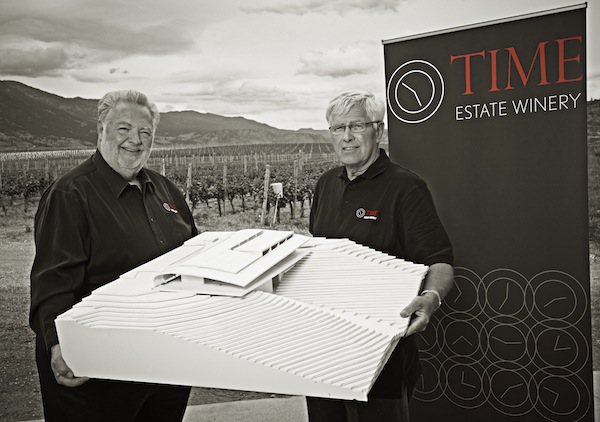
McWatters’s work on behalf of the British Columbia wine industry extended well beyond his own brands. He believed the climate and soil in the Okanagan Valley would produce world-class wines made from vinifera grapes – particularly those native to Bordeaux and Champagne – and Wendenburg proved him correct.
And yet, conventional wisdom at the time dictated that British Columbia should plant only white varieties, being too far north for red varieties, so winter-hardy hybrid grapes dominated the Okanagan Valley. The economic climate changed when the new European Union banned the use of those grapes in the production of quality table wine. On top of that, the Canada-U.S. Free Trade Agreement of 1987 was poised to open the doors to foreign wines and reduce tariffs. British Columbians would soon have access to more world-class wines and come to reject locally produced jug wines.
It would have the same effect as the California Wine Bill did in Washington state, starting in 1969. As a result, Canada and its provincial governments sponsored a $28 million pullout of hybrid grape vines following the 1988 harvest.
“Right after the free trade agreement, there were only two options available,” McWatters told Great Northwest Wine in a 2016 interview. “You could take the money from the government, pull out your vines and find a new career. Or, you could replant and contract with a winery to sell your fruit, but the wineries were hesitant to issue contracts because there were so many unknowns.”
The pullout of 2,300 acres of hybrids, according to John Schreiner’s book The British Columbia Wine Companion, left the province with about 1,000 acres of vinifera. Riesling was the largest and most proven variety left standing — about 150 acres.
Not long after, McWatters planted more than 100 acres of vines on the Black Sage Bench, a warm region near Oliver and across the border from Oroville, Wash. The success of those vines and critical acclaim for the wines once again proved him right. That region is now considered among the best spots in Canada to grow wine grapes.
There now are more than 10,500 acres of vines throughout the province, which plays host to events such as the annual Judgment of BC, highlighted by famous British wine writer Steven Spurrier.
After the first visit by Spurrier, Australia native Rhys Pender, a Master of Wine, said, “Harry has been instrumental in building the BC wine industry into something that is producing serious, quality wines that are growing in reputation around the world.”
McWatters on ground floor of BC Wine Institute
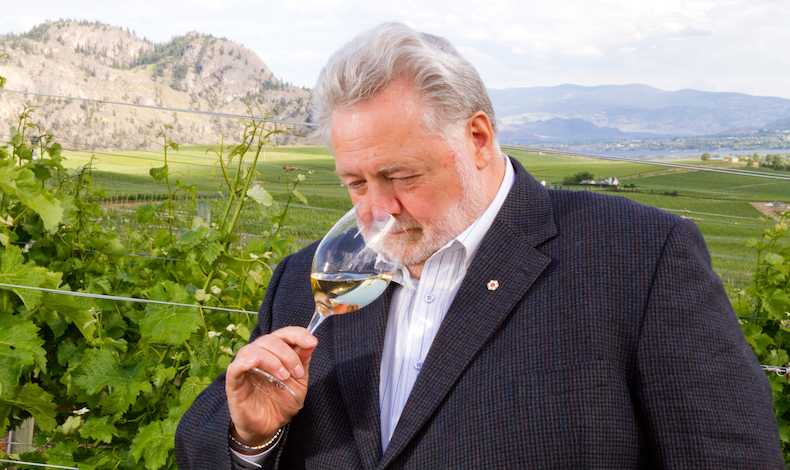
Three years after Canada-U.S. Free Trade Agreement, McWatters became the founding chairman of the British Columbia Wine Institute. He soon recruited Christine Coletta from the restaurant industry to serve as the BCWI’s founding executive director.
An important off-shoot of the institute was a quality-assurance program. New regulations mandated that wines undergo an evaluation by a tasting panel in order to be sold at a provincial liquor store. It was the precursor to the Vintners Quality Alliance system that — while still controversial in a free-market society — remains in play today.
In a July 23 interview with CBC Radio, Coletta described McWatters as “larger than life for anyone that met him. He was a tireless cheerleader and champion for VQA wines. He really believed in our industry and believed that we had a bright future when others still doubted. And, of course, Harry was right.”
Prodan, in his news release to the industry announcing the death of McWatters, said, “A dedicated advocate of BC VQA Wine, Harry was key to the BC Wine Industry’s growth from the first estate winery to more than 280 grape wineries operating in the province today. His drive, ambition and command for excellence has helped build an internationally-recognized wine industry – an industry that contributes more than $2.8 billion to the provincial economy, supports 12,000 full-time jobs, and attracts roughly one million visitors annually.”
McWatters brings fall wine festival to life
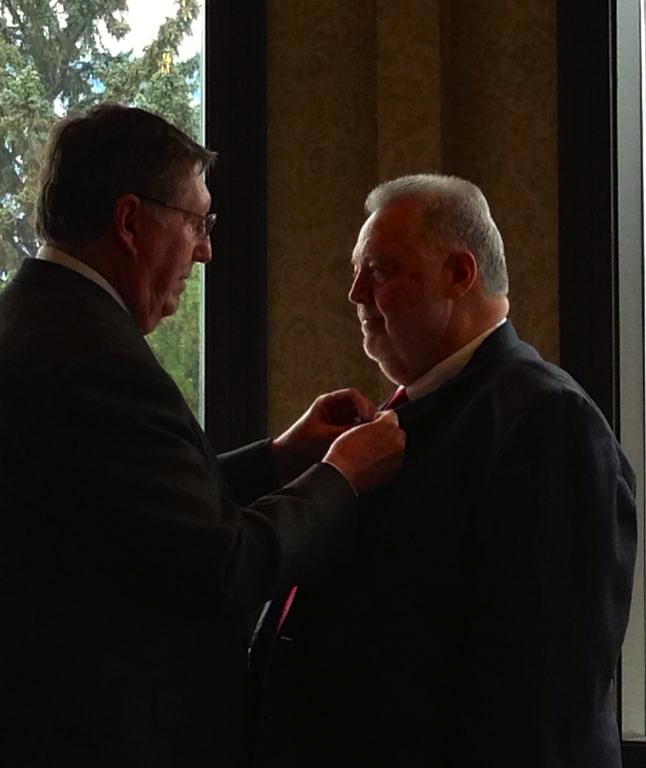
Before he bought the golf course in 1979 and developed Sumac Ridge Estate Winery, McWatters met Coke Roth, a wine merchant/distributor in Kennewick, Wash., who founded the Tri-Cities Wine Festival that same year. Wineries from Washington, Oregon and Idaho poured at the festival, and Roth invited McWatters to attend.
After witnessing the spark created by Roth’s fundraiser for the Tri-Cities Visitors and Convention Bureau, McWatters took the concept back to business leaders in the south Okanagan, pitching it as a vehicle to drive tourism. Initially, they dubbed it “Septober” because it would begin in September and end with Canadian Thanksgiving in October.
Now, the Okanagan Fall Wine Festival spans 10 days over two weekends, becoming one of the largest of its kind in the world with more than 150 events. It includes a provincial wine competition, and it has since expanded to four festivals, one for each season. They all draw thousands of wine lovers from across North America, and McWatters’s daughter, Christa-Lee, has been elected twice to serve as President of the Okanagan Wine Festivals Society.
Along the way, the bond between the Roth and McWatters families grew deep. One of Roth’s sons, Frank, is the longtime winemaker at Tagaris Winery in Richland, Wash., and it was McWatters who gave him his first winery job. Roth’s children and grandchildren grew to know McWatters simply as “Uncle Harry.”
“We have another angel,” said Roth, now an attorney. “It’s a loss of unequaled magnitude for the international wine community. He was a leader, the absence of whom would have likely rendered BC and collateral wine countries in the relative Dark Ages.”
U.S. wine judgings sought out McWatters
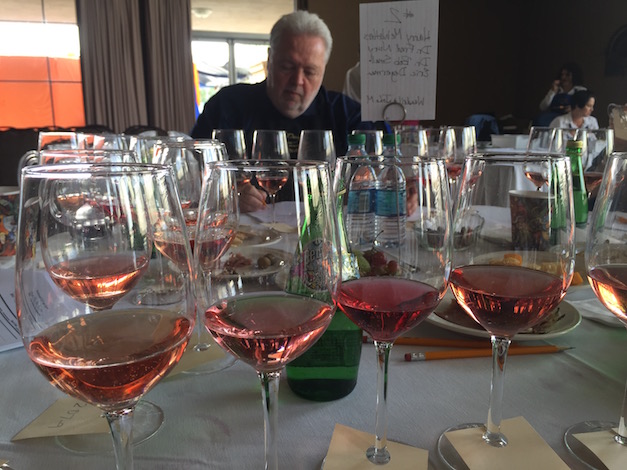
McWatters came to be recognized as one of the top wine competition judges on the West Coast. He regularly served on panels at the Los Angeles International Wine Competition, the Pacific Rim International Wine Competition in San Bernardino, Calif., and the Tri-Cities Wine Festival. He was scheduled to judge the New Orleans International Wine Awards this fall.
The Columbia Valley judging is where Brad Smith, instructional technician of vineyard and winery technology at Yakima Valley College in Grandview, Wash., came to know and admire McWatters.
“I shared a mutual BC bond with Harry, having worked for a company in North Vancouver for nearly a decade,” Smith shared via text. “We spent many a breakfast discussing the remarkable wines we tasted while judging together. He taught me something new each time we worked together. I will miss his talent and perspective and his words of encouragement for our YVC Teaching Winery.”
McWatters embraces Meritage movement
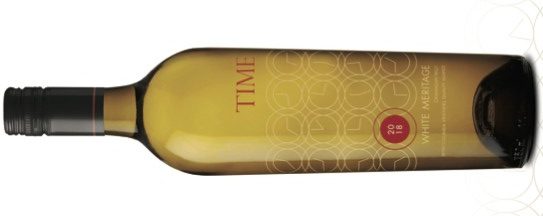
His expertise as a wine judge included Riesling and sparkling wine, and McWatters was a proud supporter of the Meritage Association, a U.S.-based alliance created in 1988 to help consumers identify premium wine blends that use only Bordeaux varieties.
As a result, Sumac Ridge was the first in Canada to produce and label a Red Meritage wine and a White Meritage wine. He produced a red Meritage under his McWatters Collection label and both red and white Meritage under his young TIME Winery project.
And when someone failed to pronounce “meritage” properly – it rhymes with heritage – McWatters would quickly correct them. He also would follow up to make sure wineries paid their association fees in order to use “Meritage” on the label.
A lifetime of blending family, friends, wine, food
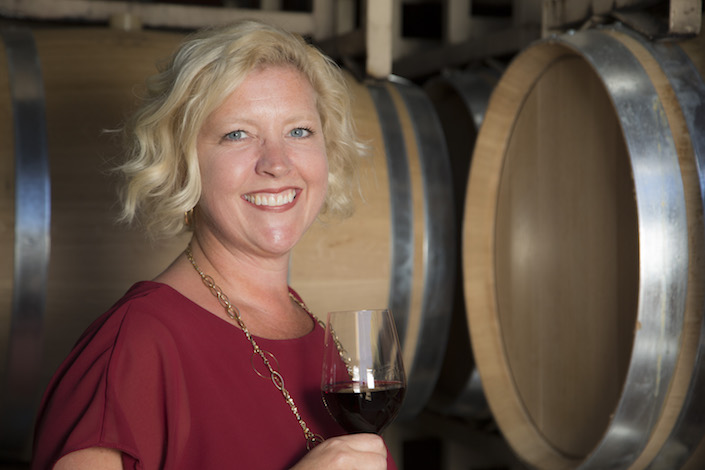
McWatters re-invented himself a number of times. In 2009, soon after leaving Vincor, he launched a wine consulting business and opened what’s now Local on Lakeshore just down the hill from Sumac Ridge. He operated the restaurant with Christa-Lee, who earned international acclaim for Local’s support of local wines in the dining room.
Along the way, father and daughter teamed up to create Encore Vineyards LTD, which includes the award-winning entry-level brand Evolve Cellars. And by 2017, Harry shifted his focus from creating an estate winery at his 60-acre Sundial Vineyard on the Black Sage Bench to transforming a downtown Penticton movie theater he sat in as a boy into TIME Winery.
Family, friends, wine and food were at the center of McWatters’s world, and his hobbies were limited to boating and swimming, the latter of which helped improve his fitness in recent months. He often wore a remembrance poppy on the lapel of his sports coat, and he counted international sports executive Tod Leiweke among his close friends.
McWatters’s survivors include soulmate Lisa Lalonde and children Christa-Lee McWatters and Darrien McWatters, who worked with their father in Penticton on their three brands – Evolve Cellars, McWatters and TIME. Earlier this month, they toasted the first anniversary of TIME, one of the province’s first urban wineries.
The celebration of his life on Friday, Aug. 9 at the Lakeside Penticton Resort was attended by a standing-room-only gathering of more than 1,200 friends and colleagues.
“Next year, as the BC Wine Industry celebrates its 30th anniversary, we will look back on these achievements and raise a glass to Harry,” Prodan said. “Cheers to you, Harry. You are a true pioneer of our industry who will be deeply missed. The industry won’t be the same without you.”
Soon after the news of his passing, the BC Wine Info Centre in Penticton created in its shop a special display of McWatters Collection wines with photos of the store’s longtime supporter. The notice read, “In honor of our founder and BC wine industry legend, Harry McWatters.”

Leave a Reply